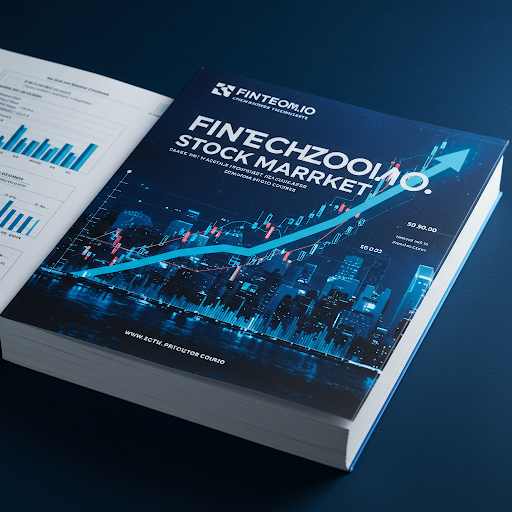Unveiling the FTSE 100: Navigating the Heart of the London Stock Exchange
The FTSE 100, a beacon of the British economy, represents the 100 largest companies listed on the London Stock Exchange. Its performance is a barometer of the nation’s financial health, and for investors worldwide, it’s a critical gauge of market trends. But beyond the raw numbers, the FTSE 100 offers a complex tapestry of opportunities and risks. Understanding its intricacies is paramount for making informed investment decisions.
The FTSE 100 index, meticulously calculated and tracked, provides a real-time snapshot of the combined market capitalization of these leading companies. From multinational giants to domestic stalwarts, these FTSE 100 companies form the backbone of the UK’s equity market. The index’s value fluctuates constantly, reflecting the collective sentiment of investors and the broader economic landscape.
Staying informed about market trends is crucial for any investor, whether a seasoned investor or a newcomer. The FTSE 100 is influenced by a myriad of factors, including:
- Economic Indicators: GDP growth, inflation rates, and interest rate decisions can significantly impact stock prices.
- Global Events: Geopolitical tensions, trade agreements, and international economic shifts can ripple through the index.
- Company Performance: Earnings reports, mergers and acquisitions, and industry-specific developments can drive individual stock movements.
- Investor Sentiment: The collective mood of the market, often driven by news and speculation, can create volatility.
Crafting Your Investment Strategy
Investing in the FTSE 100 requires a thoughtful and well-defined investment strategy. Several avenues are available:
- Direct Stock Purchases: Investing in individual FTSE 100 companies allows for tailored portfolio construction. However, it demands extensive research and active management.
- Index Funds and ETFs: These investment vehicles provide diversified exposure to the entire FTSE 100, minimizing risk and offering a passive investment approach.
- Derivatives: Options and futures contracts offer leveraged exposure to the index, but they also carry higher risk.
The Power of Real-Time Data
In today’s fast-paced financial markets, real-time stock data is indispensable. Platforms that provide up-to-the-minute information empower investors to make timely and informed decisions. This real-time visibility allows for:
- Monitoring Price Fluctuations: Tracking stock prices in real-time enables investors to identify potential entry and exit points.
- Analyzing Trading Volume: Observing trading volume can provide insights into market sentiment and the strength of price movements.
- Keeping Abreast of News: Real-time news feeds and analysis help investors stay informed about market-moving events.
Influencing the FTSE 100: Beyond the Numbers
Understanding what influences the FTSE 100 requires delving deeper than just financial statements. Several factors contribute to the constant shifts in the index:
- Currency Fluctuations: The strength of the British pound can significantly impact the earnings of multinational companies within the FTSE 100.
- Sector Performance: Certain sectors, such as energy, finance, or consumer goods, can drive the overall performance of the index.
- Dividend Yields: The FTSE 100 offers a mix of growth and income stocks, with dividend yields playing a significant role in attracting investors.
- Political Stability: Political uncertainty, such as elections or policy changes, can create volatility and affect investor confidence.
Long-Term Investing: Building Wealth Over Time
For many investors, the FTSE 100 represents a cornerstone of their long-term investment portfolio. The index’s historical performance, while subject to fluctuations, has demonstrated its ability to generate wealth over time. A long-term perspective allows investors to:
- Ride Out Market Volatility: Short-term fluctuations are inevitable, but a long-term approach can mitigate the impact of market downturns.
- Benefit from Compounding: Reinvesting dividends and allowing returns to compound over time can significantly enhance wealth accumulation.
- Capitalize on Economic Growth: As the UK economy grows, the FTSE 100 is likely to reflect that growth, providing investors with potential capital appreciation.
Investor Sentiment: The Emotional Rollercoaster
The stock market is not purely driven by rational analysis. Investor sentiment, often influenced by fear and greed, can play a significant role in shaping market trends. Understanding investor psychology is crucial for:
- Identifying Market Bubbles: Periods of excessive optimism can lead to inflated stock prices, creating bubbles that eventually burst.
- Recognizing Market Bottoms: Periods of extreme pessimism can present buying opportunities for astute investors.
- Managing Emotional Biases: Recognizing and mitigating emotional biases, such as fear of missing out (FOMO) or loss aversion, can improve investment decision-making.
The Role of Information Platforms in Empowering Investors
To best understand the FTSE 100, investors utilize platforms that provide current data. For example, investors might utilize a search that includes “fintechzoom.com ftse 100” to find up-to-date information. These platforms provide:
- Real-time Stock Quotes: Access to up-to-the-minute price data.
- Financial News and Analysis: Expert commentary and insights into market trends.
- Charting Tools: Visual representations of stock price movements and historical data.
- Portfolio Tracking: Tools to monitor and manage investment portfolios.
Conclusion: Navigating the FTSE 100 with Confidence
The FTSE 100 is a dynamic and ever-evolving index that offers a wealth of investment opportunities. By understanding the factors that influence its performance, developing a sound investment strategy, and staying informed with real-time data, investors can navigate the heart of the London Stock Exchange with confidence. Whether you are a seasoned investor or just beginning your investment journey, the FTSE 100 provides a gateway to the UK’s leading companies and the potential for long-term wealth creation.



